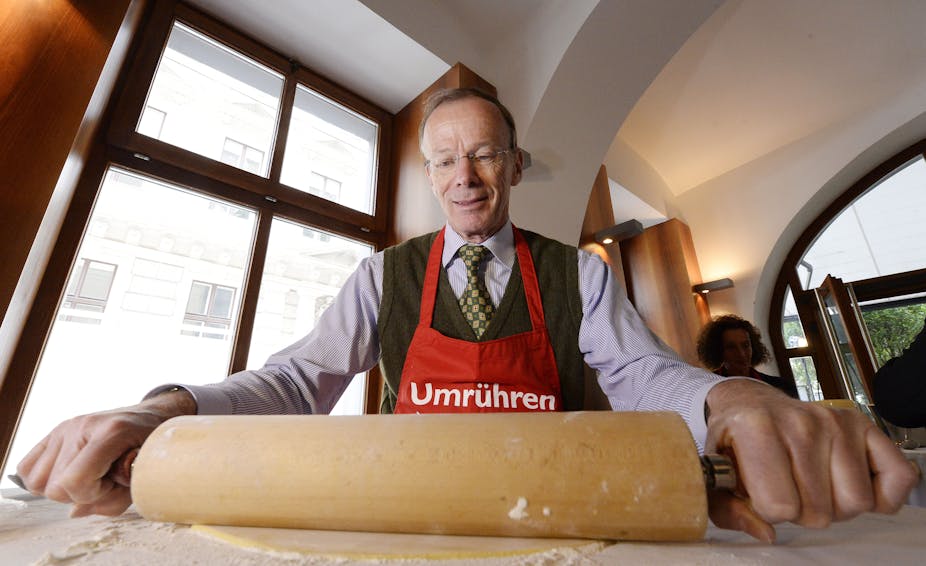In spite of the fact that Austria is one of the richest members of the European Union and, according to economists, has clearly profited from membership, the people of Austria traditionally show low levels of trust in the EU.
An opinion poll published in March revealed that 41% of Austrians believe EU accession in 1995 to have brought more disadvantages than advantages to Austria while only 22% felt the opposite. Higher prices, Brussels’ strong influence over domestic politics, rising criminality, immigration and the burden of payments to financially weak member states were the biggest gripes.

Thus, it is no wonder that Euroscepticism has dominated the public debate and media comments in the months up to the elections. However, pollsters have also picked up that people’s knowledge of the issues is mainly fairly superficial – for example, a survey two weeks before the election found that 31% of Austrians had not heard of Jean-Claude Juncker or Martin Schulz, the top candidates of the two major European party groups.
Two-horse race
The Austrian people will elect 19 MEPs (up from 17 in 2009) and, overall, the party campaigns have followed predictable lines (with a few minor surprises). The Austrian People’s Party (OeVP), who dominated the 2009 EU parliamentary elections with six MEPs, have led their list with Othmar Karas, who is vice-president of the European Parliament. The party is aligned with the European People’s Party (EPP). As the party is currently rather unpopular at the national level, election posters have featured only his picture and have omitted the party logo. Pro-Europe in outlook, the campaign has focused on reforming rather than quitting the EU under the slogan: “Towards a better Europe”.
The Social Democrats (SPOe) who won four seats in 2009 and are the senior partner in the national coalition government with the Christian Democrats, have picked up a little on the widespread Euroscepticism in Austria.
The SPOe campaign focus has been on fighting unemployment, introducing minimum social standards as well as tighter controls for the financial markets. Their campaign has lost momentum, however, after their top candidate, Eugen Freund, was caught out massively over-estimating the average wage of a blue collar worker in Austria.
Still, polls suggest that, as in 2009, the two major parties will win the most seats.

But Eurosceptics on the rise
But close behind the two major parties is the populist right-wing and Eurosceptic Freedom Party which has declared these elections as a chance for voters to settle accounts with both the unpopular national government and the European Union. It is running with a slogan: “Too much EU is stupid”.
However, the party had to replace its top candidate, the extreme right-wing MEP Andreas Mölzer, after he had described the EU as a “negro conglomerate” and expressed the opinion that, compared to the many rules and regulations of the EU, the Nazi Third Reich was “probably formless and liberal”. This was a setback for a party which was always going to have problems getting its Eurosceptic supporters to actually turn up a the polls.
Each of these three parties should receive 20-25% of the votes. The Greens, who are generally in favor of European integration, but have led a rather lukewarm campaign, are expected to end up with 15% and the recently formed New Austria (NEOS), with its liberal pro-Europe stance, should also win seats in Brussels.
The remaining four parties – all of whom have varying degrees of Euroscepticism – have no chance of passing the threshold.
The turn-out in 2009 was 46% (compared to 75% in the 2013 national elections). This is expected to fall this year because of the growing disillusionment with the EU among Austrians who clearly see the EU parliamentary elections as of secondary importance. This Euroscepticism can only grow, but other than that, the elections will have little bearing on national politics in Austria.

